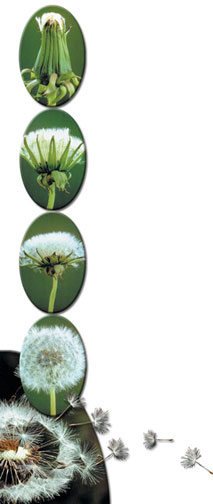 There are some rarely known attributes of plants; some plant species are quite resistant against very harsh conditions. In times of harsh conditions, these plants decrease their metabolic functions, in other words get into a kind of sleeping phase and become more resistant. Meanwhile, when conditions permit, even after hundreds of years sleep, they awake by Allah’s leave and start to sprout.
There are some rarely known attributes of plants; some plant species are quite resistant against very harsh conditions. In times of harsh conditions, these plants decrease their metabolic functions, in other words get into a kind of sleeping phase and become more resistant. Meanwhile, when conditions permit, even after hundreds of years sleep, they awake by Allah’s leave and start to sprout.
Every plant has features peculiar to climatic conditions of its habitat. For instance the features of plants in arid regions are absent in other species. For this reason one cannot expect a desert plant to survive in polar or tropical conditions or a tropical plant to live under polar or desert conditions, for all the structures of tropical plants – the size of their leaves, the resistance of their seeds etc.- are compatible with its habitat conditions. The features of plants in poles, on the other hand, comply with the polar conditions.
Why do the seeds lapse into sleeping phase?
The first phase of sleep in seeds is the drying phase during which the seed loses the water in its texture and lapses into sleep. Living plant seeds hold 90-95 percent of water while water makes up only 5-15 % of the sleeping seed’s texture. This process takes place under a genetic control. The major element in the occurrence of this process is “abscisic acid”, a hormone that slows down the functions within the seed. By means of this hormone the cells of a sleeping seed breathe very slowly; it neither feeds nor grows. (Francoise Brenckmann, Grains de Vie, p.68) There are seeds that remain in sleeping phase for decades and even for hundreds of years and then awake. This state of sleep is vitally important for the survival of the next generations of these plants. Because plants always remain in the same location, the existence of such a mechanism in harsh conditions is essential. (Advanced Plant Physiology, Malcolm B. Wilkins, p.462) There is no doubt that plants and their seeds are created flawlessly with the features they possess today. This fact is related in the Qur’an thus:
There are seeds that remain in sleeping phase for decades and even for hundreds of years and then awake. This state of sleep is vitally important for the survival of the next generations of these plants. Because plants always remain in the same location, the existence of such a mechanism in harsh conditions is essential. (Advanced Plant Physiology, Malcolm B. Wilkins, p.462) There is no doubt that plants and their seeds are created flawlessly with the features they possess today. This fact is related in the Qur’an thus:
Is He Who creates like him who does not create? So will you not pay heed? If you tried to number Allah’s blessings, you could never count them. Allah is Ever-Forgiving, Most Merciful. (Surat an-Nahl, 17-18)


